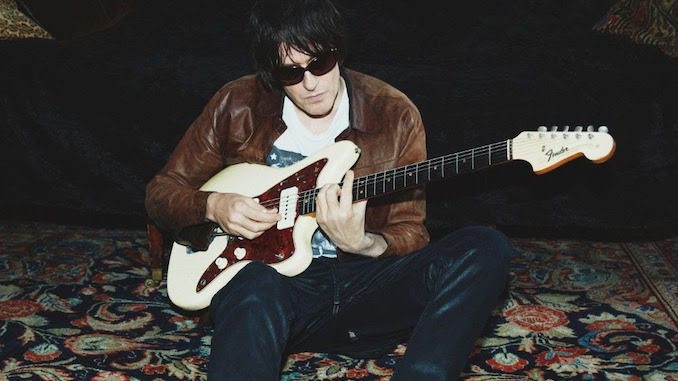They say time travel isn’t real, but then we look up and it’s June already. Something doesn’t add up here! Glitches in the matrix notwithstanding, your friendly neighborhood music writers are staying focused on the important things, like the best records released in the month of May, and boy, did we pick 10 of them. Debut albums from Squid, Bachelor and Claire George made powerful first impressions on us, while more experienced acts like Mdou Moctar and McKinley Dixon released what may very well be their breakout LPs. Don’t miss any of May’s best records, as hand-selected by the Paste Music team, down below.
Bachelor: Doomin’ Sun
It’s easy to imagine Ellen Kempner’s unassuming but affecting songs living comfortably inside Melina Duterte’s spacious sound-worlds, or even connecting confidently like a USB cable and port: You push them together and feel a click. They fit snugly, because they belong together. It may be overstating things to say Duterte and Kempner belong together, but their musical union sure is satisfying. Written and recorded during a pre-pandemic, two-week-long creative outburst in a rented California house, the songs on Doomin’ Sun bring together the two artists’ best qualities: Kempner’s vulnerable vocals and memorable melodies, and Duterte’s deadpan harmonies, rhythmic sensibility and magic touch as a producer. Sometimes, Bachelor sounds a bit more like Kempner, as on the relatively sparse “Went Out Without You,” which highlights both her knack for a nursery rhyme-like tune and her ability to sing about infatuation and insecurity in a way that’s uncluttered and relatable. Sometimes, Bachelor sounds a bit more like Duterte, as on “Spin Out,” a drop-dead gorgeous song that unfurls in shimmering slow-motion around one of the album’s most abstract set of lyrics. Her talent for making music feel lush, encompassing and dynamic—as if it’s rolling across your brain like a beautiful storm—is something to behold. But when Bachelor sounds most like Bachelor, Doomin’ Sun really sparkles. —Ben Salmon
CHAI: WINK
Though hyperpop, noise rock and other saturated genres are glorious in their own rights, it takes a lot of skill to leave behind the bells and whistles and still turn out a good record. Case in point: Japanese outfit CHAI’s third album, WINK, which abandons their bombastic approach to production but still makes you smile at every turn. Their previous releases PINK (2018) and PUNK fly in the face of anyone who claims less is more. The two records defy genre, skipping from hip-hop to synth-pop to bubblegum punk and buzzing with frenetic energy. More than anything, though, they are delightful in the purest sense of the word, overflowing with humor and optimism. The four-piece change tack with WINK, intentionally stripping back their sound (relative to their previous work, that is; don’t expect anything that sparse) to emulate the type of music they typically listen to at home. Much of their punk or power-pop influences are put aside for a more R&B-inflected sonic palette. Just compare the laid-back, Tame Impala-esque vibes of opener “Donuts Mind If I Do” with the first track of PUNK, “CHOOSE GO!”—an exuberant song that feels as all-caps as its title. But even with their energy tempered slightly, CHAI make every moment feel like a treat. —Clare Martin
Claire George: The Land Beyond The Light
Rarely has dance floor euphoria hurt as much as it does on Claire George’s debut album The Land Beyond the Light. Sure, the record’s woozy atmospherics and unhurried tempo recall something closer to Robyn’s “Honey” or the lighter side of Thom Yorke’s solo discography, but it’s not hard to imagine some hazy dance floor with pink and blue lights shining through the thick fog. There’s more than a hint of melancholy in the music itself, but the driving and morose minor key piano chords frequently get obscured by the record’s steady percussion keeping things moving along. It is dance music, after all. Dig deeper and you’ll find a collection of songs crying out from the lowest of lows, heartbroken and in mourning. But instead of wallowing in that despair, the L.A.-based artist utilizes dance beats and synths to propel her voice skyward in hopes that she’ll find some sort of catharsis in the process. To turn that pain into something constructive is an achievement in and of itself. To transform it into nine thrilling and gorgeous pop tracks is a miracle. —Steven Edelstone
Erika de Casier: Sensational
There is a delicacy to Erika de Casier that harkens back to the treasured R&B stars of the late-’90s into the early-’00s, balancing herself on the same tightrope as her inspirations between relatability and luxury. Her voice is cradled in glitters and silks, resting in the nostalgic atmosphere she’s created with a minimalist palette of acoustic guitars and pianos. Despite her album’s bare bones, de Casier does not overpower Sensational, instead allowing her songwriting and vocal control to take the wheel. It is a record with as much humility as there is confidence, and proof that de Casier has perfected the art of the homage. —Jade Gomez
Flanafi with Ape School: The Knees Start to Go
From the minds of weirdo-music collective Boiled Records co-founder Michael Johnson (aka Ape School) and multi-instrumentalist and producer Simon Martinez (Flanafi), The Knees Start to Go is a standout psychedelic achievement. Marrying singular and distinctive, guitar-based songwriting with classic analog synths and stuttering, often buzzy-sounding beats, the pair create an inimitable sound that at times resembles transmissions from a parallel universe—one tuned to a slightly weirder frequency. It is through the exploration of the otherworldly qualities in their music that tracks like “25 27 30” and “Habra” find ultimate beauty and transcendence. —Jason Friedman
McKinley Dixon: For My Mama and Anyone Who Look Like Her
“All moments, past, present, and future, always have existed, always will exist,” Kurt Vonnegut once wrote. “It is just an illusion we have here on Earth that one moment follows another one, like beads on a string, and that once a moment is gone it is gone forever.” Richmond, Virginia’s McKinley Dixon, too, rejects that illusion on his third album (and Spacebomb debut), using jazzy, avant-garde art-rap as a means of processing his past and creating a better future. Emerging from the devastation of his best friend’s tragic death in 2018, Dixon examines Black struggles and the societal factors that exacerbate them, fending off self-doubt, regret and trauma as he fights to find catharsis For My Mama and Anyone Who Look Like Her. The result is a powerful, personal act of “musical time travel” that aims to ease the pain it catalogs by breaking down barriers of understanding, tracing a nonlinear path for others to follow. —Scott Russell
Mdou Moctar: Afrique Victime
Tuareg guitarist and songwriter extraordinaire Mdou Moctar and his band made their Matador Records debut with Afrique Victime, a resolute protest against the ongoing large-scale exploitation of their continent. “Africa is a victim of so many crimes / If we stay silent, it will be the end of us,” Moctar sings out on the LP’s towering title track, loosing scorched-earth Saharan rock riffs over a shuffling groove that speeds and slows, but adamantly marches on regardless of its pace. Moctar’s Van Halen-inspired electric shred is one element among many on Afrique Victime, sharing space with acoustic folk-rock (“Tala Tannam,” “Layla”), drum machines (“Ya Habibti”), atmospheric group vocals (“Asdikte Akal”) and field recordings captured in his native Niger (“Chismiten,” “Untitled”). Mdou Moctar’s music once spread across Western Africa via cell phone data cards; now, Matador is releasing an Afrique Victime collector’s edition that’s preloaded onto (and mastered for) an old-school Nokia 6120. You’d be hard-pressed to find a better metaphor for the journey Mdou Moctar’s talents have taken them on. —Scott Russell
Pardoner: Came Down Different
The past few years have been full of reasons to fall apart, and Bay Area rockers Pardoner very nearly went that way. Max Freeland (vocals, guitar), Trey Flanigan (vocals, guitar) and River van den Berghe (drums) bonded over Yo La Tengo and Polvo in the San Francisco State University dorms, formed Pardoner, and released a pair of warm and fuzzy guitar-rock records. But when Freeland relocated to Vancouver, it appeared the band was also on its way out. Fortunately for us, Pardoner wobbled, but didn’t fall, adding an old friend in Colin Burris (bass), and reuniting in San Francisco to record Came Down Different, their third album and Bar/None Records debut, in a two-day spree with veteran hardcore producer Jack Shirley (Deafheaven, Jeff Rosenstock). Opener “Donna Said” melds rock of the noise and jangle varieties while documenting the draining demands of the music-industry rat race (“When you got feelings and guitar / You wanna trade it for cash”), while “Spike” moves a mile a minute to reflect its anti-exploitative sentiments (“Step up on some grapes / They want wine / They want twice the results / In half of the time”). These are songs about being cash-strapped, anonymous and squeezed dry by society, but somehow having the last laugh all the same. “I’ve been destroyed by life / and I feel fucking good,” Freeland sings on “Broadway,” and you believe him on both counts. Throughout Came Down Different, Pardoner deliver barbed guitar rock that’s apocalyptic, yet nonchalant, like lighting a joint with a burning world. —Scott Russell
Sons of Kemet: Black to the Future
With Black to the Future, U.K.-based jazz supergroup Sons of Kemet are following up nothing less than a Mercury Prize-nominated effort in 2018’s Your Queen Is a Reptile. Shabaka Hutchings (composer, sax, clarinet) helms a band featuring tuba player Theon Cross, and dual drummers Tom Skinner and Edward Wakili-Hick, and the Sons welcome a variety of collaborators on their latest, including Lianne La Havas, Moor Mother, Angel Bat Dawid, Kojey Radical, D Double E and poet Joshua Idehen. Bandleader Hutchings calls the album “a sonic poem for the invocation of power, remembrance and healing” that “depicts a movement to redefine and reaffirm what it means to strive for Black power.” You could also describe it as a towering hour of Afrofuturist jazz, haunting on “Field Negus,” hungry on “Hustle,” righteously furious on “Black,” visionary and virtuosic everywhere. —Scott Russell
Squid: Bright Green Field
Though Bright Green Field is easily Squid’s most musically varied and ambitious work yet, the British quintet—whose contemporaries include black midi and Black Country, New Road—remains thematically tethered to the pervasive anxiety and fear that have defined them. Where “The Cleaner,” the highlight from 2019’s Town Centre EP, hinted at simultaneously more abrasive and hooky grooves to come, Bright Green Field delivers on that promise without diminishing Squid’s mania. —Max Freedman




